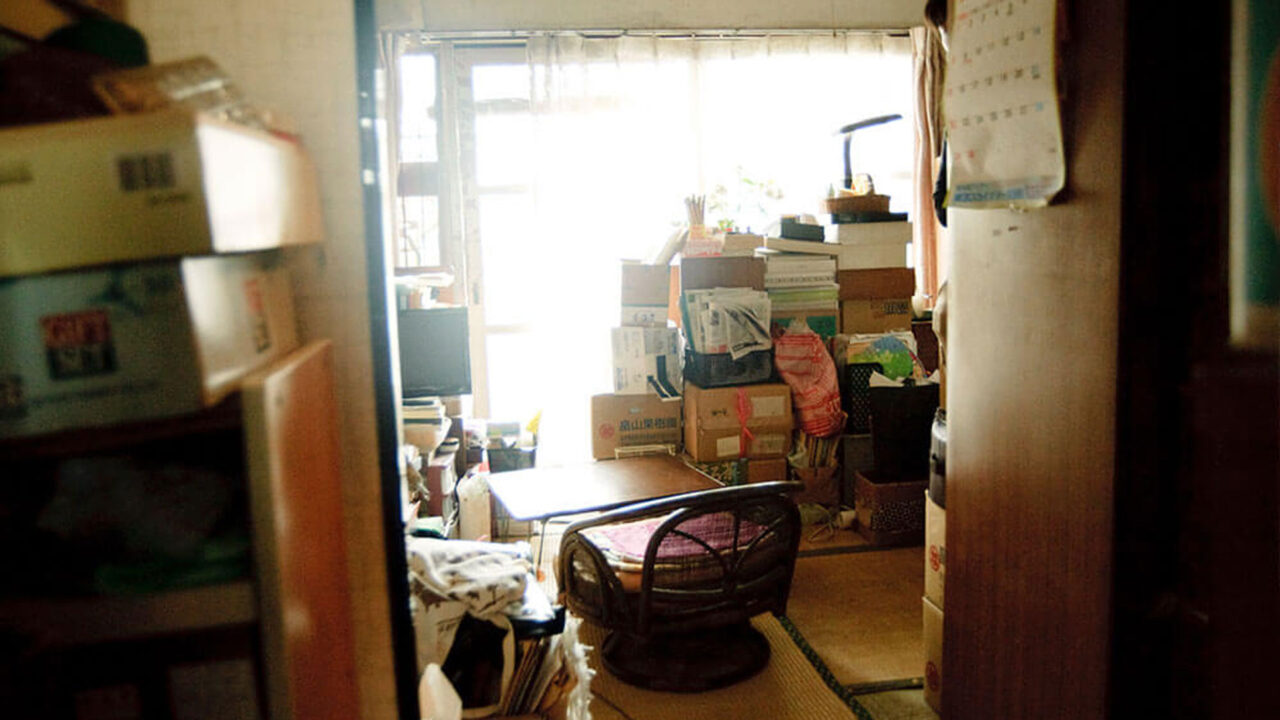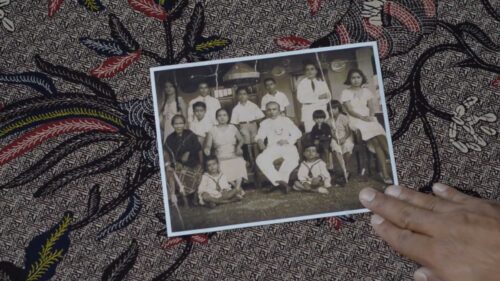We’ll never know since when development, advancement, and modernity became inseparable to numbers. Those numbers didn’t just stop at economic growth index worksheets but has shaped a mindset on how to position yourself amid contemporary capitalism. The mindset that we consciously believed in personal-universal level was later produced individual and collective roles.
Akiko Sugimoto in Danchi Woman (2018) came in the effort to understand Shizu Uchikoshi, a middle-aged female resident of danchi, an economical residency complex. He recorded Uchikoshi’s solitude at the age of 85, inside a room loaded with memories. The room she had to quickly empty because, like any other danchi’s residents, Uchikoshi is nothing more than just a guest who had to leave the place any time the owner desired.
Shizu Uchikoshi had to leave and start a new chapter, without any excuses nor longing in her mind. At her final days in the room she had lived for 30 years, the memory of how Uchikoshi ended up there spurt back. We were also led to explore the stories behind the artefacts that had accompanied her three decades of residency. Not because she had forgotten all those memories; it’s because she had lived the same memories in the same room, all alone for decades.
The ritual to unload boxes containing stuffs became a process of replaying memories. An exhausting process for Uchikoshi who just wanted to spend the remaining of her life in solitude. Nevertheless, through the narrative series selected, Sugimoto seemed like he didn’t want to give the impression that Uchikoshi’s life snippet showed in this movie became something to be cried over.
Regardless of what’s being offered for 28 minutes, Danchi Woman presented a classic conflict. The attendance of nation, private developer, or anyone with legitimacy of power to intervene the relation between human and living space, to what’s inside his own mind. Blurring the boundaries of private and public, when one party had the authority to monopolize, create, and destroy those boundaries.
In the reality Shizu Uchikoshi lived in, individual’s position became subordinate beneath the power of an authority. The authority presented in the movie appeared formless; except through the conversations between danchi residents. Sugimoto thus revealed an instrument as the extension of the authority: the officers who helped Uchikoshi packed her belongings to speed up her moving process. At a glance, their appearance seemed like an effort to humanize Uchikoshi who was already very old to do any physical activities. Sugimoto himself even recorded how those officers were actually individuals who couldn’t empathize with Uchikoshi’s situation.
However, their presence as a matter of fact functioned as the distraction from the fundamental problem located in the system. The effort to humanize Uchikoshi was later interpreted to be very straightforward and superficial; without any attempt to understand Uchikoshi as a human with all her memories on the things she has gone through inside her danchi.
Through the story of Shizu Uchikoshi, Akiko Sugimoto has been successful to speak up some very relevant issues. The seizure of living space appeared in various form and danchi, are just one of many. The refugees’ crisis as a cause of unfinished war until they were evicted from their own houses in the name of construction in many places is another side of the coin from what Sugimoto has recorded. In a different approach within the same purpose, playing underground narration is merely a commodity; then revoking individual’s right to preserve his living space. And all he could do is just negotiating about time limit and rental costs.
Sugimoto recorded another side of development, advancement, and modernity. Always the same side in every other country as long as the people within believed and let the development to be perceived as shallow as government’s year-end report numbers. It will forever be an empty space that doesn’t leave even a corner for memories, moments, and human relations; cursing anyone within to die estranged with the ground and with his own self.
Written by Fahmi Khoirussani
Translated by Shiela M. Larasati



